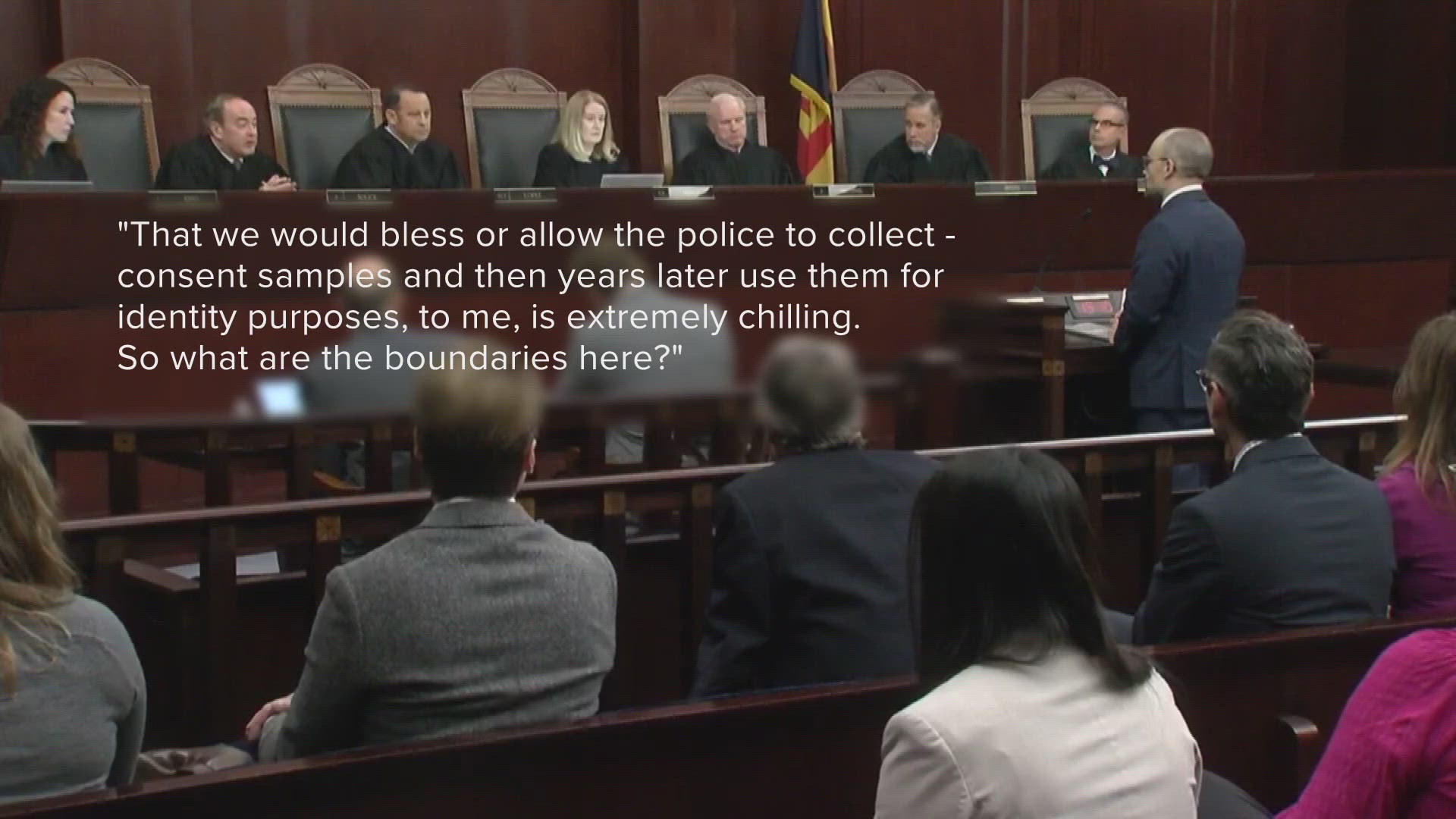SCOTTSDALE, Ariz. — The Arizona Supreme Court heard oral arguments Thursday over a blood sample used to arrest the man police believe killed a Scottsdale woman almost a decade ago.
Attorneys for Ian Mitcham, the suspect in the high-profile murder of Allison Feldman, appealed to the state’s highest court arguing the way police used the blood sample to make a DNA match to the crime scene violated Mitcham’s Fourth Amendment rights.
In February 2015, Feldman, who was 31, was murdered in her Scottsdale home.
In 2018, Scottsdale police announced with DPS that they identified Mitcham as the suspect.
Investigators said they were able to make the connection, in part, by using familial DNA, matching DNA found at the scene with one of Mitcham’s brothers who was already in prison. Scottsdale police then used Ian Mitcham’s DNA sample from a 2015 DUI to connect the DNA at the crime scene to Mitcham.
However, in 2022, at the filing of Mitcham’s defense team, the trial court judge threw out the DNA evidence.
The state appealed to the Arizona Court of Appeals, which then ruled to allow the DNA evidence to be used at trial.
But then, defense attorneys again appealed to the Arizona Supreme Court.
“Law enforcement is supposed to ask for permission to conduct the search, not forgiveness after the fact” said Mikel Steinfeld, Maricopa County Public Defender.
Attorneys for Mitcham argued the blood sample wasn’t obtained legally.
“That would be no different than if all of us just had our blood drawn right now and then put into tubes and then they tested all of us to see who might be at any number of crime scenes,” David Euchner, Arizona Attorneys for Criminal Justice, told 12News outside of court.
But prosecutors argue that evidence was collected as part of a crime and evidence can be used.
“There is not a reasonable expectation of privacy in an STR DNA profile that is developed from evidence that police lawfully hold,” Nick Klingerman, who argued the case as a special deputy county attorney for Maricopa County, said.
Some of the justices questioned the boundaries of DNA samples collected.
“That we would bless or allow the police to collect - consent samples and then years later use them for identity purposes, to me, is extremely chilling. So what are the boundaries here?,” Justice Clint Bolick said.
Klingerman said prosecutors are not arguing anything can be done with the DNA evidence, but that this DNA sample was evidence of a crime.
"Once that blood sample comes back and it's tested, it is evidence of a crime that will be stored by police like any other evidence and used at trial, re-tested if needed to be and it is available," Klingerman said.
The state also argued they would have inevitably gotten Mitcham’s DNA after he was convicted on other unrelated felony charges in 2022.
“It's functionally different than other evidence. If you go into a house without a warrant and find evidence in there, you can't repeat that but, but DNA is immutable. It is different. Whether I take a sample today, tomorrow or the next day, it will be the same. The result will be the same.,” Klingerman said.
Still, Mitcham’s attorneys argue the ends don’t justify the means.
“It may be evidence, but that doesn't mean that the police can break all the rules while they're doing it, just like they can't when they're arresting somebody, they can't break their legs in the process,” Euchner said.
The process to justice for Feldman’s family is continuing almost 10 years later.
“I did this for Allison and I'm going to be here every day to make sure that the case is adjudicated correctly,” said Harley Feldman, Allison’s father.
Now the ruling is in the hands of Arizona's supreme court justices, which could come in weeks to months.
“We have the right person who murdered my daughter, I believe, and we want a conviction,” Feldman said.

